YARMOUTH — Perched in a tidy control booth atop a dredge named Samson III, Capt. Ted Augustine keeps a set of switches in one hand and a radio in the other.
With barely a few words over the radio, he and his three-man crew set in motion a muddy ballet of steel and diesel fumes, scooping massive buckets of muck from the Royal River’s narrow navigation channel, where they have been at work since Oct. 20.
They call themselves the “gentlemen dredgers,” and they have worked and lived together for more than a decade, bouncing from harbor to harbor in New England, scooping years of mud from clogged waterways.
Their longevity together is unusual in the nautical construction business.
“People bounce around this business all the time,” said First Mate William Jedrey, who has worked with Augustine and the crew’s crane operator, Tom Desmond, for 15 years. “I trust the guys I work with. Everyone has their job on the dredge. We don’t ever have to use radios.”
Each job can last months at a time, but the crew members avoid hotels, opting to rent a house together instead.
It’s like a fraternity, but there are only four members, everyone is over 50 years old and, according to the crew, the food is phenomenal. If their digs in Yarmouth are any indication, Augustine, who does most of the cooking, favors spacious, well-appointed kitchens.
Finding the right house, and then getting its owner to agree to rent it to dredgers, can be somewhat challenging, Augustine said.
“To rent a house to a bunch of guys in the dredging business isn’t that appealing to homeowners,” Augustine said. “So I put on my Brooks Brothers shirt and go find a house. That’s always the biggest surprise to (the crew), to see what I can come up with for a house. And once we get there, they’re hungry for a good meal together.”
This time around, the gentlemen dredgers’ retreat is a $1.9 million, 13-acre spread less than a mile from the harbor, appropriately called a “gentleman’s farm,” according to a real estate listing.
On Friday, after a long week on the water, the dredgers climbed into an aluminum skiff, motored back to the harbor and boarded their used white passenger van with Massachusetts plates. (It was once a prison van, and still has room for padlocks at each door seam to prove it.)
On most nights, like firefighters, they shop for food together, and on Friday came home with New York strip steak, cauliflower, salad fixings and light beer. They try to eat healthy, Augustine said.
“I’m watching my girlish figure,” said Second Mate Gregory Goodwin.
As on the dredge, everyone has a job: Augustine does most of the cooking, while his crew does much of the cleanup.
But before their meal, first comes the ritual removal of mud-splattered coveralls, waders and boots in the home’s heated garage.
With accommodations so refined, Augustine insists on one basic rule.
“No boots in the house,” he said. “I’ve always been the owner of multiple vacuums.”
His desire for cleanliness is most apparent in his control booth, which the dredgers call “the God box.” This carpeted, 8-by-8-foot work station has two computers and all the dredge’s key controls. It is also kept spotlessly clean. Post-it notes are arranged in neat rows. Everything has a place. There is even a vacuum cleaner.
Goodwin is the crew’s newest member. He has spent only a few years dredging with Augustine, but said he plans to stay on the Samson III as long as they’ll have him. Goodwin, who lives with his wife on Cape Cod, used to own a construction supply business, but missed working on the water. He sold his business and hasn’t looked back, he said.
“I feel like I’ve known these guys all my life,” Goodwin said.
In Yarmouth, the dredging of the Royal River – paid for by the U.S. Army Corps of Engineers – has been long-awaited by local boaters and fishermen, who watched nervously for 17 years as the river slowly filled up with mud, making its channel nearly unnavigable during low tide. There was so much mud under the slips at Yankee Marina that many boats were left high and dry twice a day if they were not moved before the tide went out.
But those conditions will be gone before long, as Augustine and his crew chip away at the accumulation. They expect to pull at least 83,000 cubic yards of material from the channel by the time they’re finished – which could be this winter or next spring, depending on the weather.
With a couple of decades in the business, the group works together like a single organism, moving the dredge barge and a 150-by-50-foot dump scow through the winding 80-foot channel that leads to Casco Bay.
“Everybody knows their job,” Augustine said. “We barely have to talk to each other.”
Every day, they follow the same basic routine. Retrieve the empty dump scow from Casco Bay, position the dredge and the empty scow along the navigation channel, and start digging. When the dump scow is full, a tugboat retrieves it and pushes it about 12 miles out to the dump site, where the mud is dropped to the sea floor. The next morning, the cycle is repeated, and will be until the channel is clear.
The movement of such large vessels through the river’s narrow travel lane has not gone unnoticed. Whenever the dredging occurs close to shore, people seem to gather to watch the process unfold.
One Yarmouth resident, Dick Jackson, whose home on Burbank Lane overlooks the river, even sent the crew a note after watching them maneuver the loaded dump scow through a tricky section of the channel in front of his home, all in the dark.
“The mud barge was grounded, close to shore, and the push by (the) tug was straight into the rock breakwater. Wind was light but that crew managed to turn that barge ever so delicately as to miss everything and sail majestically down the Royal River,” Jackson wrote. “I know you will say you do it all the time, but these eyes appreciate the seamanship. Thanks for fixing our river.”
Send questions/comments to the editors.



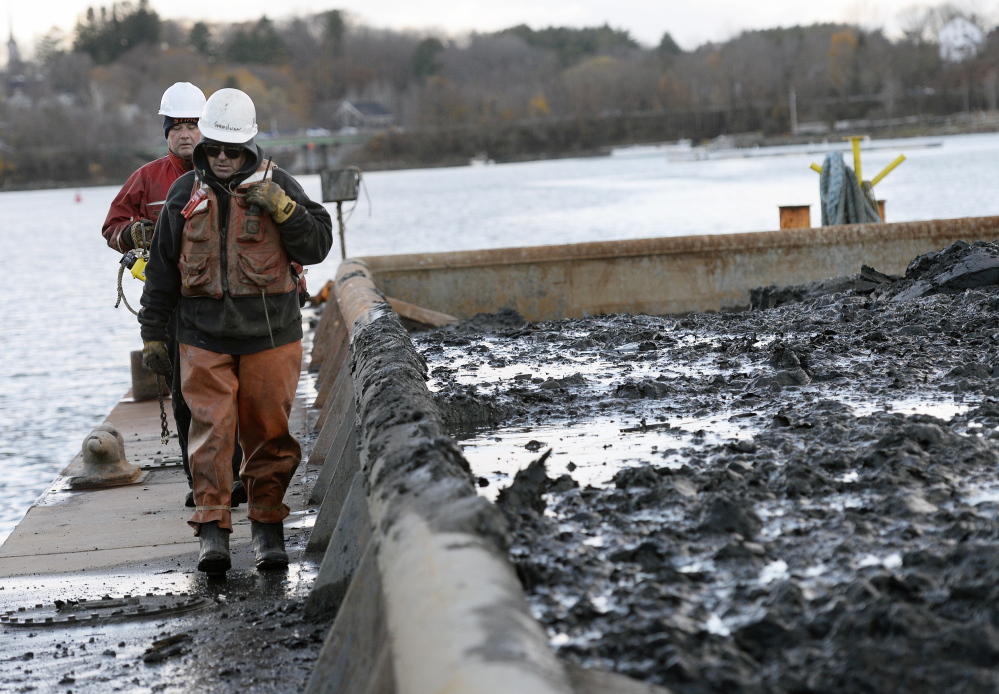
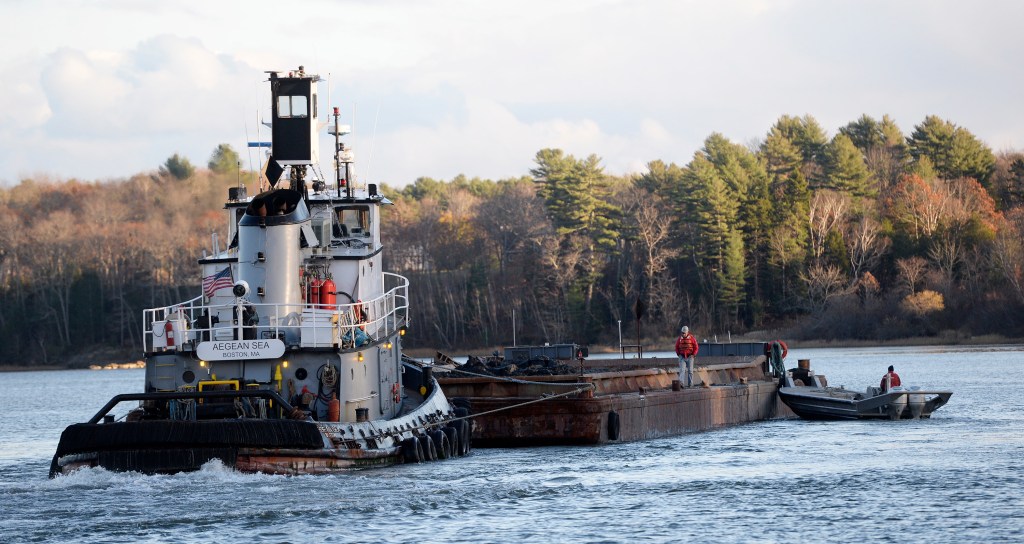
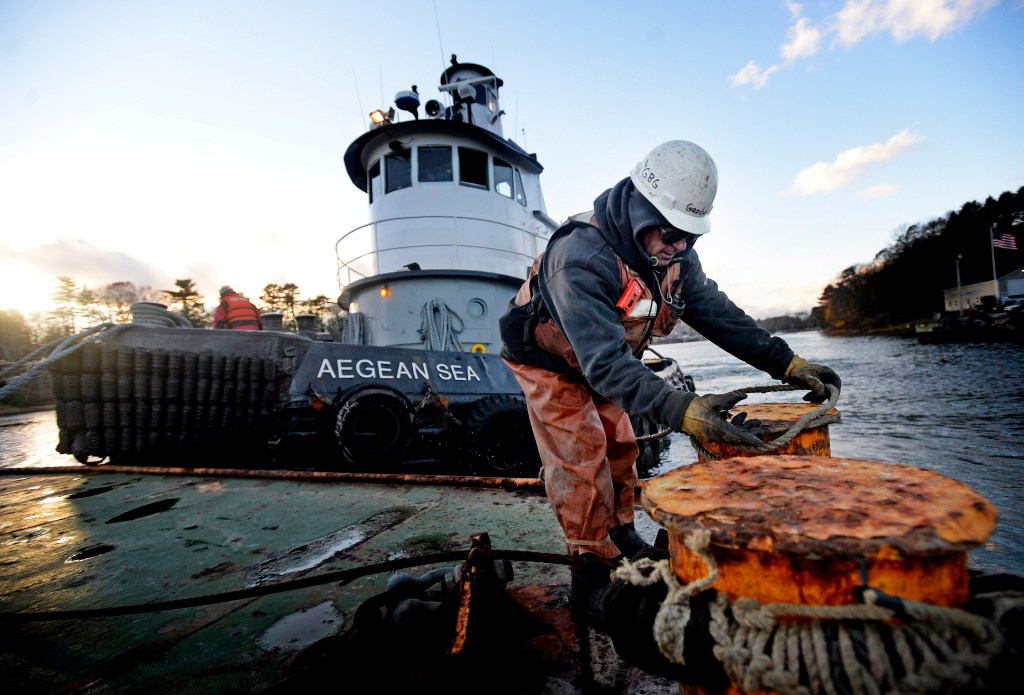
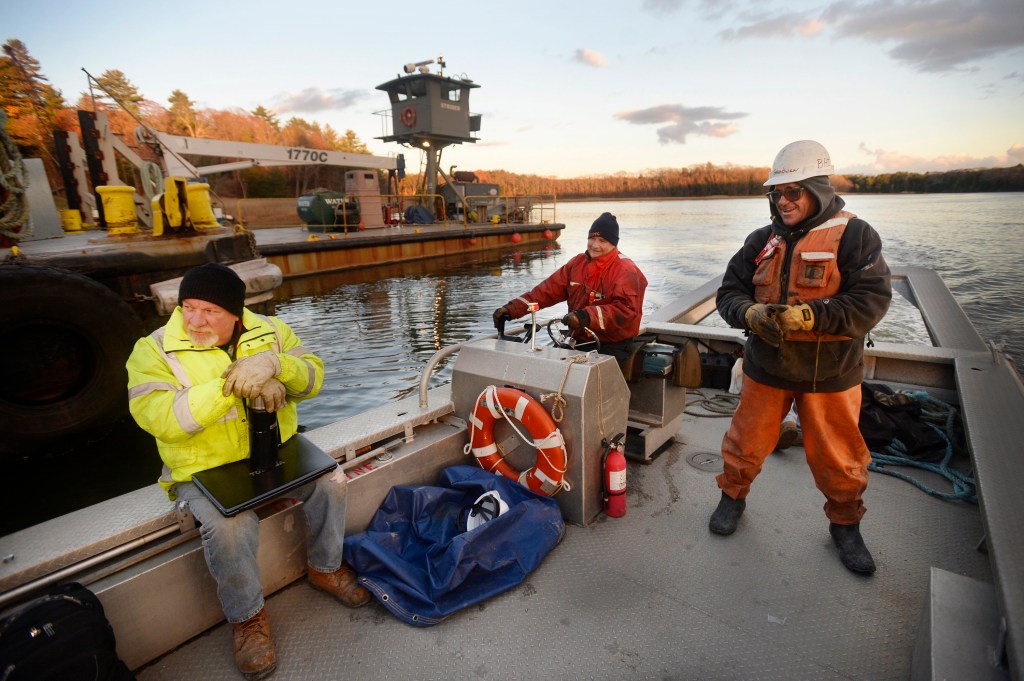
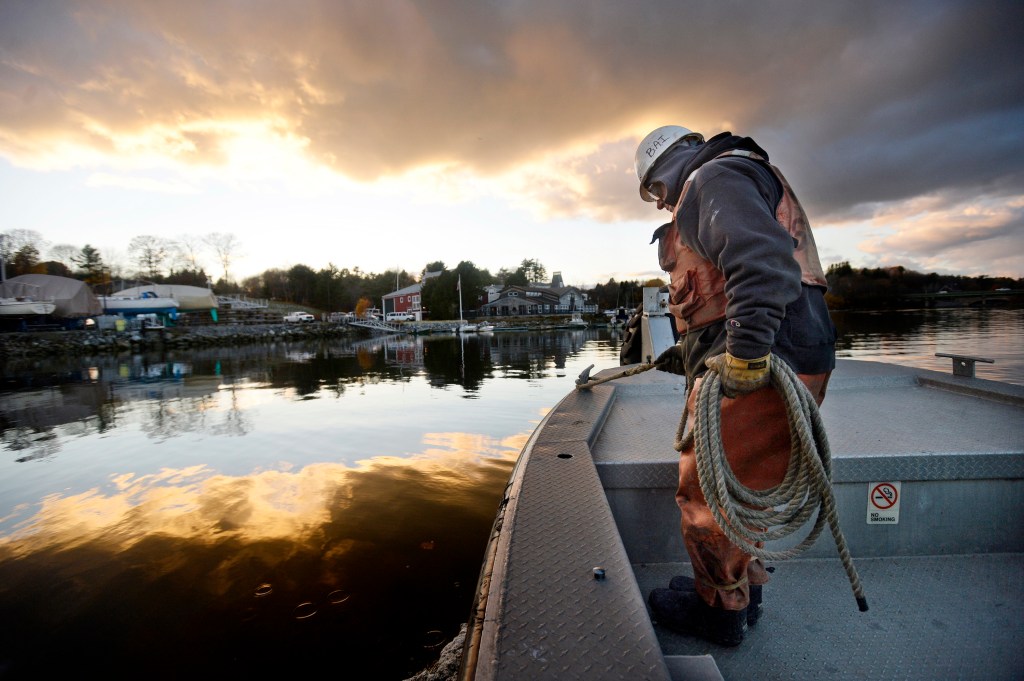
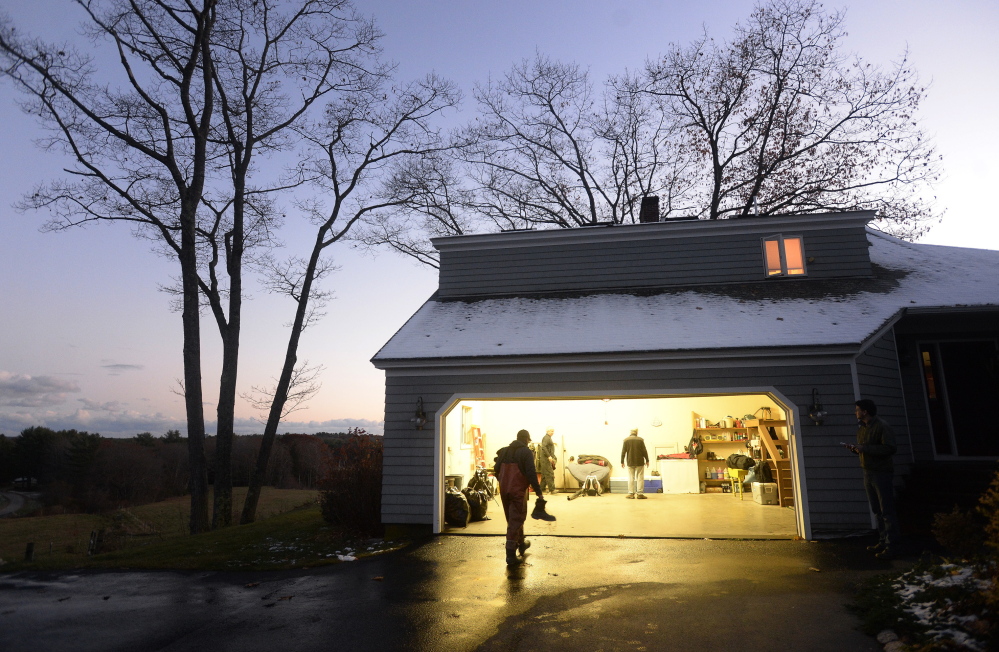
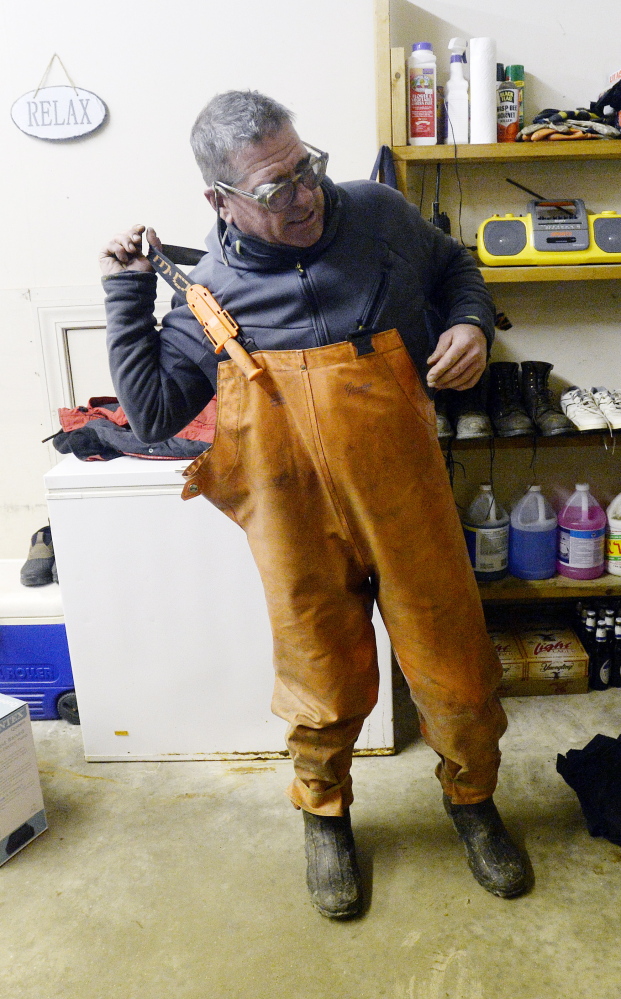

Success. Please wait for the page to reload. If the page does not reload within 5 seconds, please refresh the page.
Enter your email and password to access comments.
Hi, to comment on stories you must . This profile is in addition to your subscription and website login.
Already have a commenting profile? .
Invalid username/password.
Please check your email to confirm and complete your registration.
Only subscribers are eligible to post comments. Please subscribe or login first for digital access. Here’s why.
Use the form below to reset your password. When you've submitted your account email, we will send an email with a reset code.